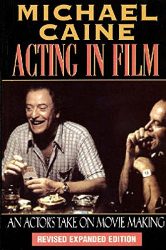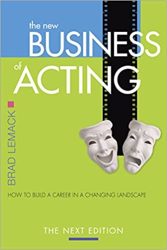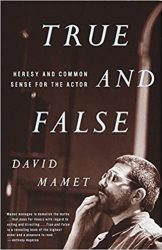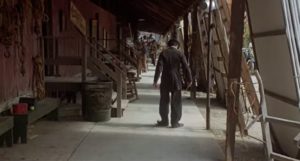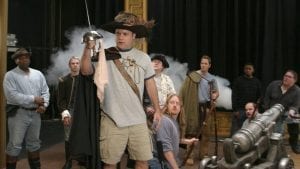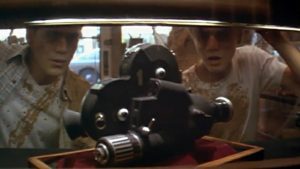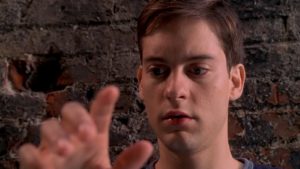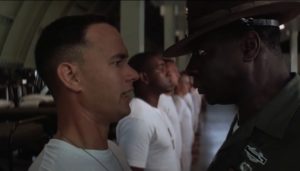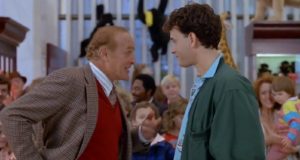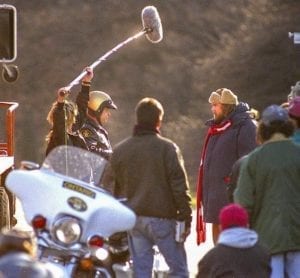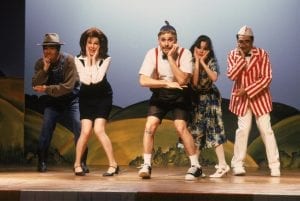
Many people write about different ways to memorize, but sometimes you look at a technique and you think, is that actually practical? Would real actors actually do this in real life? To give you information that is actually practical, this article talks about techniques that real actors use.
Some actors memorize lines by reading the script hundreds of times, others start off monotone and then add the emotion in later, others use cue cards, and so on. Additionally, actors have different background things they do to help them memorize better, such as exercising while learning lines.
The details of these and other techniques are described below in the actors’ own words together with our commentary to help give some additional tips. This is Part 1 of How Actors Memorize Lines (here is Part 2).
1. Jeff Daniels

“You know that you get the script and you need to start getting those words, word for word with no improv, into your head as soon as possible. I’ve learned to memorize it like a grocery list; kinda flat and monotone. Alan Arkin taught me that way back in the 80s when I got to do a project with Alan. You don’t act it. You just get it in your head so it can flow. Then you can find the rhythm and then you can pick up the speed and add the acting on top of it. You can’t add what you’re going to do or how you’re going to interpret it until you’ve got it in your head and you know you know it. That’s different than, ‘I think I know it,’ or ‘I just memorized it two hours ago.’ It’s gotta get in there, live and settle in there, almost like cement. Then when you do it, there’s no question that you know it. Now you can dance on it, as I like to call it. That’s when Sorkin gets fun. You get actors who know it cold, they can throw everything they’ve got at it, and there’s no fear that they’re going to forget their next line. Fassbender and I have a scene in the middle of ‘Steve Jobs’ that’s like a heavyweight fight. We were both able to get to that place that made the scene all the more exciting to play.” [full article]
Key Learning:
Repeat lines, without trying to act them, over and over and over when you first receive the script. In the acting world, there is something called an Italian Run, which means running lines back and forth as quickly as possible because that’ll usually expose where you have to stop and think and remember. The goal is to run through your whole scene as fast as possible without any pausing, without any acting, and without any stopping to think of the next line. Once you can do an Italian Run perfectly several times, then you can start to think about character and acting.
2. Jim Parsons
“I do note cards all week. And in longhand, I write out all my lines again and again and again. And on the weekends, I drill them. I walk around with my note cards for each scene and do one scene at a time. And I’ll go to my computer, and I’ll type the whole scene out on my word doc and then I’ll go back and I’ll do the second scene, and I’ll type the whole scene out on a word doc. It’s maddening.” [full article]
Key Learning:
Before the performance, there is an aspect to memorizing that involves a variation in sensory inputs. So, writing up your lines, then reading your lines. Then writing the lines again in a different medium. Most actors might write their lines out once on cue cards but the act of writing them out word for word over and over through cue cards, on pieces of paper, and on your computer will help you to fully remember every word exactly how it was written.
3. Helen Mirren

“You don’t need to memorize all of your lines at once. Start by memorizing one line. Once you have that down, add another. Keep going until you’ve tackled the entire script. You might be surprised at how much your memory can hold — and how quickly you get there.” [full article]
Key Learning:
Rather than trying to learn all your lines at once, it can be effective to just learn lines either individually or in small groups. So, for example, if you’re doing three scenes in a movie, then rather than trying to memorize all three scenes every time you go through the script, you isolate and only work on scene one. You work it and work it and work it until you get tired of it or you think you’ve really made some progress. Then you either take a break and go back to that same scene or move onto the other and return to the first scene later on. In other words, compartmentalization. This can go to an extreme by simply just working on a single line at a time until you can say it perfectly in a variety of ways.
4. Anthony Hopkins
“It’s a method I use, nothing mysterious about it. I learn the text cold, read it maybe 100 or 200 times.” [full article]
Key Learning:
Instead of having a general goal of memorizing, give yourself a number (such as a number of times to read a text) and stick to it before you take a break. 200 in 1 day, 10 times in an hour, the extent is up to you, but goals like this can accelerate the process. Another strategy to memorize your lines is simply just saying them as much as you can versus writing them out and reading them. Additionally, you can also keep your memory sharp when you’re not working on any script by memorizing other things, such as poems. (By the way, if you’re curious about what might be going through actor’s mind as they read a script many times, you might be interested in our article about how actors read scripts.)
5. Hio Miyazawa

“It took a long time — I would just walk around my house with my script in my hand, reading it over and over again. And then I would put it down, and start reading it again. I had about a month prior to the first day of rehearsals and I took my script everywhere and I would spend at least three hours a day reading it. But also, during rehearsals, the lines do change, and it is harder to forget lines and to memorize them again, because I have to try to get rid of the ones that are already in my head and to replace it with a brand new line.” [full article]
Key Learning:
Incorporating the lines in your day-to-day life is another strategy you can use. If you always have your lines around you then it becomes very easy to always read them. Moreover, instead of reading your lines every time you have a spare second, if your lines are always in your back pocket, you can pull them out and say them out loud. Walking around and alternating between looking at your lines and then saying them out loud throughout the course of a day in micro practices can be very advantageous. Then you can go to the next level by mixing the small little practices with more pronounced and focused longer sessions. In other words, allocating an hour just to read and memorize your lines every day and then, after that hour, throughout the rest of the day, going through bits and pieces whenever you have a moment.
6. Kelly McCreary

“It’s really hard for me to memorize the medical jargon if I don’t know the meaning of every single word. So I do have to do a little Wikipedia/YouTube research to figure out what I’m talking about. And then with the monologues, all of Shonda’s series have a distinctive rhythm. I’ve seen supercuts of how the characters tend to speak in threes. So in the long monologues, you can kind of expect that to be the climactic moment of the speech, when you get to your three requests or the three points you’re trying to make — you repeat it three different ways. And so you can sort of structure your learning around, OK, what’s the crux of this speech? Look for the threes.” [full article]
Key Learning:
In some situations, you’re going to need to learn very specific words and very specific phrases; think about medical jargon or military jargon. These will be the specific words that most actors will stumble on because they’re not in common usage so spending time focusing on memorizing and pronouncing specific words can be another way that you, as an actor, can memorize your lines. Additionally, you can notice patterns in the structure of the text as a whole to help you memorize what kind of part should happen next.
7. Katee Sackhoff

“What I realized is that, because of the repetitive nature of memorizing dialogue, I had to be doing something else at the same time . . . I get on a treadmill with my script or I walk around the neighborhood, talking to myself. People think I’m insane. And I memorize my dialogue. That’s what I do. So, I get my cardio in as I’m flipping pages. I do probably an hour a day of just walking on a treadmill.” [full article]
Practicing your lines with distraction is another effective way to make sure that you’ve actually memorized the lines. When you’re on set in the heat of the moment, when the cameras and lights are all on you, it can be very stressful and distracting. Therefore, incorporating distraction while trying to memorize can be another effective strategy. Distraction can also motivate you to keep going; this is why you sometimes watch TV or listen to music while you exercise.
8. Henry Winkler
“I would memorize as quickly as I could because I couldn’t read the page and act at the same time to make an impression on the casting person or on the director and the producers . . . I improvised the rest. And when they said, ‘Well you’re not doing what’s written on the page,’ I said, ‘I’m giving you the essence of the character.’” [full article]
Key Learning:
Memorizing the intentions of the lines instead of the specific words. The other way to think about it is just getting the gist of the line rather than the exact words. Sometimes if you’re looking at your lines and you have the words close enough but they’re your words versus what’s exactly written in the script, most people won’t even notice and, in fact, it might be advantageous because it’s your words so you will be more comfortable saying them and they will sound more natural. Typically, this is more in film and television than in plays.
9. Park Yu-hwan

“I practice my lines at the Han River a lot. At first I started going to the river because I was too embarrassed to practice in front of my mom and it’s actually become more comfortable now. I think it somehow helps me memorize better. I’ve even gone at midnight.” [full article]
Key Learning
Finding a location where you can concentrate and you don’t feel self-conscious about saying things out loud is another strategy that actors use. In other words, finding a location where you can say things and act weird as you’re saying these things is essential to both memorizing and embodying the lines from a scene or script. The follow up to this is, once you feel you are comfortable saying the lines, finding places where you feel uncomfortable and trying to say the lines again to replicate that self-consciousness and the feeling of being watched and judged that so many of us have when we have to do things in front of a camera or others. Arnold Schwarzenegger talked about how he would periodically like to work out in front of others and periodically work out privately because both brought out different types of motivation. (By the way, if you’re reading this and thinking, wow, what a good idea, you might be interested in the article about exercises to help actors feel like no one is watching.)
